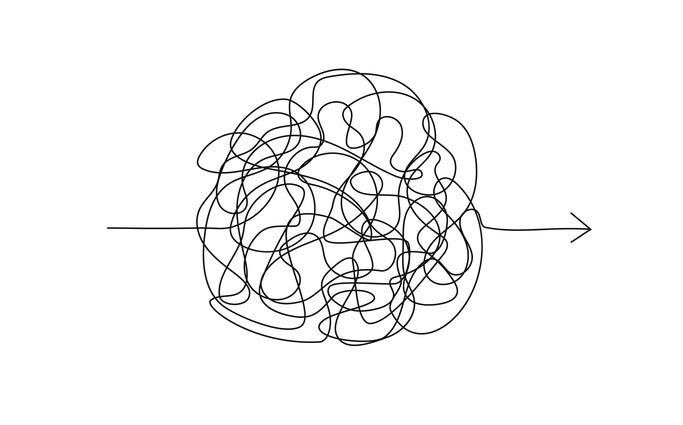Post-Traumatic Stress Disorder
Post-Traumatic Stress Disorder is a type of anxiety that arises after a terrifying event that could have put your life in danger. It can arise from a physical trauma or an emotional trauma. After World War II many soldiers were diagnosed with “shell- shock”, a diagnosis which is now referred to as Post-Traumatic Stress Disorder. PTSD can result from a natural disaster, a terrorist event, death of a loved one, or a violent personal assault.
PTSD can come in two types: single event PTSD and complex PTSD. Single event can come from incidents like a car crash or an assault. Complex PTSD is more likely to come from repeated incidents such as torture or childhood sexual abuse.


Post-traumatic stress can be triggered by either experiencing it or witnessing an event. Symptoms may include flashbacks, nightmares and severe anxiety, as well as uncontrollable thoughts about the event.
Most people who go through traumatic events may have temporary difficulty adjusting and coping, but with time and good self-care, they usually get better. If the symptoms get worse, last for months or even years, and interfere with your day-to- day functioning, you may have PTSD.
Getting effective treatment after PTSD symptoms develop can be critical to reduce symptoms and improve function. Post-Traumatic Stress Disorder symptoms may start within one month of a traumatic event, but sometimes symptoms may not appear until years after the event. These symptoms cause significant problems in social or work situations and in relationships. They can also interfere with your ability to go about your normal daily tasks.
PTSD symptoms are generally grouped into four types: intrusive memories, avoidance, negative changes in thinking and mood, and changes in physical and emotional reactions. Symptoms can vary over time or vary from person to person.

PTSD
PTSD comes from something that may have been threatening to life and limb at one time being triggered and now perceiving things that once seemed normal as a huge threat. This is what triggers the central nervous system and our fight or flight so violently.
Psychoeducation around PTSD as well as understanding the underlying triggers that start them are crucial steps in terms of fighting off these debilitating and disorientating experiences. Your good therapist will be able to help you fight these attacks
Knowing how your own PTSD manifests, as well as working with someone trained in working with exposing you to the gentle stimulus will help you greatly to normalize the feared stimulus. PTSD can certainly become less severe over time and with help. Untreated it can get worse. PTSD can also link to general anxiety, social anxiety, panic attacks, OCD and Phobias.
Getting Help
Anxiety Ireland has fully trained counsellors nationwide on standby to assist you in taking back control of these problems.
Our network of counsellors are working online and over the phone so they can be free to reach you where you are located.
Symptoms
- NOT BEING ABLE TO SLEEP
- FEELING CONSTANTLY ON EDGE
- DIFFICULTY CONCENTRATING
- IRRITABILITY
- FEELING OUT OF CONTROL
- INCESSANT NEGATIVE AND ANXIETY PROVOKING THOUGHTS
- TENSE MUSCLES
- LOW ENERGY AND TIREDNESS
- MAGNIFYING SMALL EVENTS OUT OF PROPORTION
“For months after the attack, I couldn’t close my eyes without envisioning the face of my attacker. I suffered horrific flashbacks and nightmares. For four years after the attack I was unable to sleep alone in my house. I obsessively checked windows, doors, and locks. By age 17, I’d suffered my first panic attack. Soon I became unable to leave my apartment for weeks at a time, ending my modelling career abruptly. This just became a way of life. Years passed when I had few or no symptoms at all, and I led what I thought was a fairly normal life, just thinking I had a ‘panic problem”
Anonymous
“I had uncontrollable thoughts of someone entering my house and harming my daughter. I saw violent images every time I closed my eyes. I lost all ability to concentrate or even complete simple tasks. Normally social, I stopped trying to make friends or get involved in my community. I often felt disoriented, forgetting where, or who, I was. I would panic on the freeway and became unable to drive, again ending a career. I felt as if I had completely lost my mind. For a time, I managed to keep it together on the outside, but then I became unable to leave my house again.”
Anonymous
“I’m watching TV. A violent scene that would send me into flashbacks comes on and I disassociate. I’m no longer even “there” to react. I make plans and then spend an hour before thinking of ways to back out because the anxiety of being around people is almost overwhelming. Shopping during busy times makes me dizzy and short of breath. This is PTSD. I am not a combat veteran. I never served in a war. I am one of the millions of people who struggle in silence because it’s easier than explaining it over and over”
Anonymous
